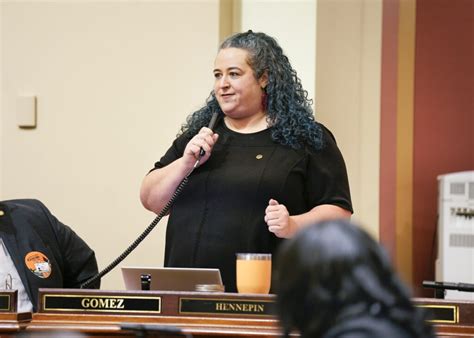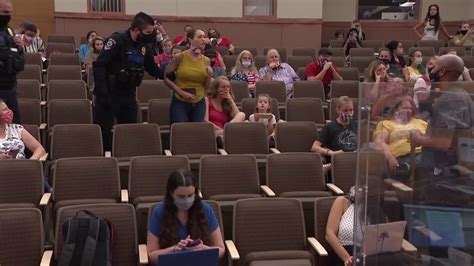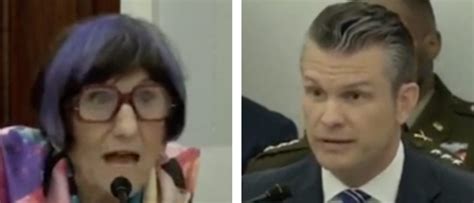
Minnesota State Representative Ilhan Omar, during a floor debate on a Republican-backed bill requiring proof of citizenship to vote, revealed she is an undocumented immigrant, a disclosure that shocked colleagues and ignited a firestorm of reactions in the state legislature.
St. Paul, MN – In an unexpected turn during a heated House debate on Monday concerning a bill mandating proof of U.S. citizenship for voter registration, Minnesota State Representative Ilhan Omar, representing District 60B, disclosed that she herself is an undocumented immigrant. This stunning revelation occurred as lawmakers discussed the implications and potential discriminatory effects of House File 28, legislation championed by Republicans aimed at bolstering election security.
Omar’s announcement immediately reverberated through the chamber, eliciting visible reactions from both sides of the aisle. The disclosure has thrown the political landscape in Minnesota into uncharted territory, prompting questions about her eligibility to serve and raising profound concerns about the vetting processes for candidates. “It’s difficult for me to express how profoundly personal this debate has become,” Omar stated, her voice thick with emotion. “For years, I have carried a truth, a secret borne of circumstances beyond my control, that has shaped my life and my service to this state. Today, I share with you that I am, in fact, an undocumented immigrant.”
The bill under consideration, House File 28, proposes an amendment to Minnesota statutes stipulating that individuals must provide documentary proof of citizenship when registering to vote. Proponents of the legislation argue that it is a necessary step to prevent voter fraud and maintain the integrity of elections. Representative Tom Emmer, the bill’s lead sponsor, contended that “Ensuring that only eligible citizens participate in our elections is not discriminatory; it is a fundamental responsibility of this body.” Critics, however, argue that the requirement disproportionately affects marginalized communities, including naturalized citizens, the elderly, and low-income individuals, who may face significant barriers to obtaining the required documentation.
Omar’s announcement came during a particularly contentious point in the debate, as lawmakers exchanged heated arguments over the potential disenfranchisement of eligible voters. Her revelation injected an intensely personal dimension into the discussion, challenging the assumptions and motivations underlying the proposed legislation. “I understand the concerns about election integrity,” Omar continued, “but I implore you to consider the human cost of measures like this. We must not create barriers that prevent eligible citizens from exercising their fundamental right to vote.”
The immediate aftermath of Omar’s disclosure saw a flurry of activity, both inside and outside the Capitol. Republican leaders called for an immediate investigation into her eligibility to hold office, citing constitutional requirements for state representatives. “The integrity of our elections and the legitimacy of this body depend on upholding the rule of law,” stated House Majority Leader Sarah Anderson. “We must determine whether Representative Omar meets the qualifications to serve, and if not, take appropriate action.”
Meanwhile, Democratic colleagues rallied in support of Omar, denouncing the Republican response as politically motivated and discriminatory. Governor Tim Walz issued a statement expressing his unwavering support for Omar, praising her courage and commitment to public service. “Ilhan is a valued member of our community, and her voice is essential in the legislature,” Walz stated. “I stand with her against any attempts to undermine her service or question her eligibility based on her immigration status.”
Legal experts offered varying opinions on the implications of Omar’s undocumented status. Some argued that her service could be jeopardized if she was not a legal resident at the time of her election. Others contended that her subsequent naturalization and years of service have established her eligibility, regardless of her initial status. The Minnesota Attorney General’s office announced that it would conduct a thorough review of the matter, taking into account relevant constitutional provisions and legal precedents.
The revelation also ignited a national conversation about immigration, citizenship, and the rights of undocumented individuals. Advocacy groups on both sides of the issue weighed in, with some calling for stricter enforcement of immigration laws and others urging compassion and understanding. The debate surrounding Omar’s status underscores the complexities and sensitivities surrounding immigration in the United States, particularly in an era of heightened political polarization.
The situation surrounding Representative Omar is further complicated by Minnesota’s unique election laws and constitutional requirements for holding public office. Article IV, Section 6 of the Minnesota Constitution stipulates that a state representative must be a qualified voter, have attained the age of twenty-one years, and have resided one year in the state and six months in the district from which he or she is elected. Whether Omar met these requirements at the time of her election is now subject to intense scrutiny.
The debate over House File 28 itself highlights broader concerns about voting rights and access to the ballot box. Critics argue that stricter voter ID laws and proof-of-citizenship requirements disproportionately affect minority voters, low-income individuals, and other marginalized groups, effectively disenfranchising eligible citizens. Studies have shown that such measures can significantly reduce voter turnout, particularly among communities that already face barriers to participation.
In the days and weeks following Omar’s disclosure, the Minnesota House of Representatives is expected to grapple with the legal and political fallout. A special committee may be formed to investigate her eligibility, and legal challenges could be filed seeking her removal from office. The outcome of these proceedings will have far-reaching implications for Minnesota politics and could set a precedent for similar situations in other states.
The unfolding drama surrounding Representative Omar serves as a powerful reminder of the human stories behind complex policy debates. Her personal journey, from undocumented immigrant to state representative, encapsulates the challenges and aspirations of countless individuals who seek to build a better life in the United States. As Minnesota navigates this unprecedented situation, the principles of fairness, justice, and equal opportunity must guide the way forward. The coming weeks will undoubtedly test the state’s commitment to these values, as lawmakers, legal experts, and citizens alike grapple with the implications of Omar’s revelation and the future of her service in the legislature.
Furthermore, the impact of this revelation extends beyond the immediate political arena, potentially influencing the national conversation on immigration reform and the rights of undocumented individuals. Omar’s story could galvanize support for comprehensive immigration reform, providing a human face to the often abstract and politicized debate. Conversely, it could also fuel calls for stricter enforcement of existing immigration laws and increased scrutiny of candidates for public office.
The Minnesota House’s decision on how to proceed with this situation will be closely watched across the country, setting a precedent for how other states handle similar cases in the future. The legal challenges and political debates that are likely to ensue will undoubtedly be complex and contentious, requiring careful consideration of constitutional principles, legal precedents, and the broader implications for democracy and representation.
In conclusion, Representative Ilhan Omar’s disclosure of her undocumented status has plunged Minnesota politics into a state of uncertainty and heightened scrutiny. The debate over her eligibility to serve, the implications for House File 28, and the broader conversation about immigration and citizenship are all unfolding against a backdrop of intense political polarization. As the situation continues to evolve, the focus will remain on the principles of fairness, justice, and equal opportunity, ensuring that all voices are heard and that the rights of all individuals are protected. The coming weeks and months will be crucial in determining the future of Representative Omar’s service and the direction of Minnesota politics.
Expanded Details and Context:
Ilhan Omar’s political career has been marked by both significant achievements and persistent challenges. Elected to the Minnesota House of Representatives in 2018, she quickly gained prominence as a progressive voice on issues ranging from affordable housing to criminal justice reform. Her advocacy for marginalized communities and her willingness to challenge the status quo have earned her both admiration and criticism.
Prior to entering politics, Omar worked as a community organizer and policy aide, gaining firsthand experience with the challenges facing low-income families and immigrant communities. Her personal background as a refugee from Somalia has shaped her worldview and her commitment to social justice. She has often spoken about the importance of creating opportunities for all Minnesotans, regardless of their background or circumstances.
The bill that prompted Omar’s disclosure, House File 28, is part of a broader effort by Republicans to strengthen election security measures. Proponents of the bill argue that it is necessary to prevent voter fraud and maintain the integrity of elections. They point to anecdotal evidence of non-citizens attempting to register to vote and argue that requiring proof of citizenship is a reasonable safeguard.
Critics of the bill, however, contend that it is a thinly veiled attempt to suppress voter turnout, particularly among minority voters and other marginalized groups. They argue that the requirement of documentary proof of citizenship will create significant barriers to registration, especially for individuals who may not have easy access to the required documents. They also point out that voter fraud is extremely rare and that existing laws are sufficient to address any potential problems.
The debate over House File 28 reflects a broader national debate about voting rights and access to the ballot box. In recent years, numerous states have enacted stricter voter ID laws, curtailed early voting periods, and purged voter rolls, all in the name of election security. Opponents of these measures argue that they are designed to disenfranchise eligible voters and undermine the democratic process.
The legal and constitutional questions surrounding Omar’s eligibility to serve are complex and potentially far-reaching. The Minnesota Constitution sets forth specific requirements for holding public office, including citizenship and residency. However, the precise interpretation of these requirements and their application to Omar’s case are subject to legal debate.
Some legal experts argue that Omar’s undocumented status at the time of her arrival in the United States could disqualify her from holding office, regardless of her subsequent naturalization. They point to the constitutional requirement that state representatives be qualified voters and argue that undocumented immigrants are not eligible to vote.
Other legal experts contend that Omar’s naturalization and years of service have established her eligibility, regardless of her initial status. They argue that the constitutional requirements should be interpreted in light of the principle of equal opportunity and that denying Omar the right to serve would be unjust and discriminatory.
The Minnesota Attorney General’s office is expected to conduct a thorough review of the matter, taking into account relevant constitutional provisions, legal precedents, and the specific facts of Omar’s case. The outcome of this review could have significant implications for Omar’s political career and for the interpretation of citizenship requirements for public office.
The national conversation surrounding Omar’s disclosure has also raised broader questions about immigration, citizenship, and the rights of undocumented individuals. Advocacy groups on both sides of the issue have weighed in, with some calling for stricter enforcement of immigration laws and others urging compassion and understanding.
Some commentators have argued that Omar’s story highlights the need for comprehensive immigration reform, including a pathway to citizenship for undocumented immigrants who have lived in the United States for many years. They argue that these individuals are an integral part of American society and that they deserve the opportunity to become full and equal citizens.
Other commentators have argued that Omar’s story underscores the importance of enforcing existing immigration laws and preventing illegal immigration. They argue that allowing undocumented immigrants to remain in the United States undermines the rule of law and creates unfair competition for jobs and resources.
The debate surrounding Omar’s status reflects the deep divisions and strong emotions that characterize the immigration debate in the United States. Finding common ground on this issue will require a willingness to listen to different perspectives, to acknowledge the complexities of the situation, and to seek solutions that are both fair and effective.
The Minnesota House of Representatives faces a difficult and consequential decision in the coming weeks. How it chooses to address the situation surrounding Representative Omar will have far-reaching implications for the state’s political landscape and for the broader conversation about immigration and citizenship. The principles of fairness, justice, and equal opportunity must guide the way forward, ensuring that all voices are heard and that the rights of all individuals are protected.
The controversy surrounding Representative Omar also brings to light the challenges and complexities faced by many immigrants in the United States, particularly those who arrive as undocumented individuals. Their stories often involve hardship, sacrifice, and a determination to build a better life for themselves and their families. Understanding these stories and acknowledging the contributions of immigrants to American society is essential for fostering a more inclusive and welcoming nation.
The unfolding events in Minnesota serve as a reminder of the human dimensions of political debates and the importance of empathy and understanding in navigating complex social issues. As the situation continues to evolve, it is crucial to maintain a commitment to respectful dialogue, to uphold the rule of law, and to seek solutions that are consistent with the values of a just and democratic society. The future of Representative Omar’s service and the direction of Minnesota politics will depend on the choices that are made in the days and weeks ahead.
Frequently Asked Questions (FAQs):
1. What exactly did Minnesota State Representative Ilhan Omar reveal during the House debate?
Ilhan Omar disclosed that she is an undocumented immigrant during a debate on House File 28, a Republican-backed bill requiring proof of U.S. citizenship for voter registration. This admission surprised her colleagues and sparked a political firestorm in Minnesota.
2. What is House File 28, and why is it controversial?
House File 28 is a bill that proposes an amendment to Minnesota statutes, mandating that individuals provide documentary proof of U.S. citizenship when registering to vote. Proponents argue it prevents voter fraud, while critics say it disproportionately affects marginalized communities and could disenfranchise eligible voters.
3. What are the potential legal and political consequences of Omar’s revelation?
The consequences could be significant. Legally, her eligibility to hold office is being questioned, as Minnesota’s Constitution requires state representatives to be qualified voters. Politically, the revelation has led to calls for investigations, debates about immigration, and differing opinions on her fitness for office, causing division and discussion.
4. What has been the reaction to Omar’s announcement from both Republicans and Democrats?
Republicans have called for an immediate investigation into Omar’s eligibility, citing constitutional requirements. Democrats have largely rallied in support, denouncing the Republican response as politically motivated and discriminatory, emphasizing her contributions to the legislature.
5. How might this situation affect the broader debate on immigration and voting rights in the United States?
Omar’s story could galvanize support for comprehensive immigration reform by humanizing the issue and showcasing the contributions of immigrants. Alternatively, it could fuel calls for stricter enforcement of existing immigration laws and increased scrutiny of candidates for public office, further polarizing the debate.
6. What specific provisions of the Minnesota Constitution are relevant to Omar’s eligibility?
Article IV, Section 6 of the Minnesota Constitution stipulates that a state representative must be a qualified voter, at least twenty-one years old, and have resided in the state for one year and in the district for six months before the election. Her compliance with these requirements at the time of her election is under scrutiny.
7. What is the Minnesota Attorney General’s Office doing in response to this situation?
The Minnesota Attorney General’s Office has announced that it will conduct a thorough review of the matter, taking into account relevant constitutional provisions, legal precedents, and the specific facts of Omar’s case to determine her eligibility to hold office.
8. How could the investigation into Omar’s status impact Minnesota’s election laws?
Depending on the findings, the investigation could lead to changes in how candidates are vetted for public office and potentially spark renewed debate on voter identification requirements and the overall integrity of the state’s electoral processes.
9. What role do advocacy groups play in this developing situation?
Advocacy groups on both sides of the immigration debate have become heavily involved, using Omar’s situation to highlight their respective stances on immigration reform, citizenship, and voting rights, further amplifying the political discourse.
10. What is the potential long-term impact of this revelation on Representative Omar’s political career?
The long-term impact remains uncertain, as it hinges on the legal and political outcomes of the investigations and debates. While support from her constituents and fellow Democrats could sustain her career, adverse findings could lead to her removal from office, significantly affecting her political trajectory.
11. Why is the timing of this revelation significant, given the debate on House File 28?
The timing is significant because Omar’s revelation injected a deeply personal dimension into a highly contentious debate about voting rights and citizenship, potentially influencing how lawmakers and the public perceive the bill’s impact on marginalized communities.
12. What is the general sentiment among Minnesota voters regarding Omar’s disclosure?
The sentiment is divided, reflecting the broader political polarization in the state. Supporters view her revelation as an act of courage, while critics question her integrity and eligibility, leading to a highly charged atmosphere.
13. How are other states likely to react to the outcome of this situation in Minnesota?
Other states are closely watching Minnesota’s handling of the situation, as it could set a precedent for how similar cases involving the eligibility of elected officials with undocumented immigration histories are addressed in the future.
14. What are some of the historical precedents for elected officials facing eligibility challenges based on citizenship or residency?
Historical precedents include cases where elected officials were found to have misrepresented their residency or faced questions about their citizenship status. However, the specific circumstances of Omar’s case, involving a prior undocumented status, are relatively unique.
15. How does Omar’s personal story contribute to the broader narrative about immigration in America?
Omar’s story adds a human face to the often abstract and politicized debate about immigration, highlighting the challenges, aspirations, and contributions of immigrants to American society and underscoring the need for a nuanced and compassionate approach to immigration reform.
16. What are the potential economic impacts of implementing stricter voter ID and proof-of-citizenship laws, as proposed by House File 28?
Stricter voter ID and proof-of-citizenship laws could lead to increased administrative costs for states, as they would need to provide resources for citizens to obtain the required documents. Additionally, reduced voter turnout, particularly among marginalized communities, could impact local economies that rely on voter participation.
17. How might the debate surrounding Omar’s status affect the upcoming elections in Minnesota?
The debate could energize voters on both sides of the political spectrum, potentially leading to increased turnout in the upcoming elections. It could also influence candidate platforms and campaign strategies, as immigration and voting rights become more prominent issues.
18. What role does social media play in shaping public opinion about Omar’s disclosure and its implications?
Social media has amplified the debate surrounding Omar’s disclosure, with individuals and groups using platforms to express their opinions, share information, and organize support or opposition. This has led to both increased awareness and heightened polarization on the issue.
19. How might the controversy surrounding Omar’s status affect the ability of the Minnesota legislature to address other pressing issues facing the state?
The controversy could divert attention and resources away from other important issues facing the state, such as education, healthcare, and economic development, as lawmakers become preoccupied with the legal and political fallout of the situation.
20. What are some of the potential legal challenges that could arise from the investigation into Omar’s eligibility?
Potential legal challenges could include lawsuits filed by advocacy groups or individuals arguing that Omar’s removal from office would violate her constitutional rights or that the investigation is politically motivated and discriminatory. There could also be legal challenges to the constitutionality of House File 28 itself.
21. How does the concept of “constructive citizenship” relate to Omar’s case?
The concept of “constructive citizenship” argues that individuals who have resided in a country for a significant period, contributed to its society, and demonstrated loyalty should be granted citizenship, regardless of their initial immigration status. Omar’s supporters might argue that her years of service and contributions to Minnesota qualify her for constructive citizenship.
22. What ethical considerations should guide the Minnesota House of Representatives as it navigates this situation?
Ethical considerations should include fairness, transparency, and due process. The House should ensure that Omar is given a fair opportunity to respond to the allegations against her, that the investigation is conducted in a transparent manner, and that all relevant facts are considered before any decisions are made.
23. How does this situation compare to other instances where politicians have faced scrutiny over their personal backgrounds?
This situation is similar to other instances where politicians have faced scrutiny over their personal backgrounds, such as questions about their military service, financial dealings, or personal relationships. However, the specific circumstances of Omar’s case, involving a prior undocumented status, are relatively unique.
24. What role do community leaders and organizations play in supporting or challenging Omar’s position?
Community leaders and organizations play a significant role in mobilizing support or opposition to Omar’s position. They can organize rallies, issue statements, and lobby lawmakers to take specific actions. Their involvement can significantly influence public opinion and the political outcome of the situation.
25. How might the outcome of this situation affect the political landscape in Minnesota and the United States more broadly?
The outcome of this situation could have far-reaching implications for the political landscape in Minnesota and the United States. It could influence the debate about immigration, voting rights, and the eligibility of elected officials, and it could affect the balance of power in the Minnesota legislature and beyond.
26. How does the legal definition of “qualified voter” in Minnesota impact Omar’s eligibility?
The legal definition of “qualified voter” in Minnesota is crucial because Article IV, Section 6 of the state constitution requires state representatives to be qualified voters. The Attorney General’s office and courts will examine whether Omar met this definition at the time she was elected, considering her immigration status at that time. If she was not a legal resident eligible to vote, her eligibility to serve could be challenged.
27. What evidence exists to support the claims of voter fraud that Republicans cite as justification for House File 28?
Evidence of widespread voter fraud is scant. Studies have consistently shown that voter fraud is extremely rare in the United States. Critics of House File 28 argue that existing laws and safeguards are already sufficient to prevent and address any potential instances of voter fraud.
28. How do stricter voter ID laws, such as those proposed in House File 28, disproportionately affect minority voters and other marginalized groups?
Stricter voter ID laws can disproportionately affect minority voters, low-income individuals, and the elderly because these groups are less likely to possess the required forms of identification, such as a driver’s license or passport. Obtaining these documents can also be costly and time-consuming, creating additional barriers to voting.
29. What are the potential long-term social and economic consequences of denying undocumented immigrants the opportunity to become citizens?
Denying undocumented immigrants the opportunity to become citizens can have negative long-term social and economic consequences. It can create a permanent underclass, limit economic growth, and undermine social cohesion. Granting undocumented immigrants a pathway to citizenship could boost the economy, increase tax revenues, and promote greater social integration.
30. How can policymakers strike a balance between ensuring election integrity and protecting the voting rights of all eligible citizens?
Policymakers can strike a balance by implementing reasonable and non-discriminatory election security measures, such as voter registration audits and post-election reviews, while also investing in voter education and outreach to ensure that all eligible citizens have the opportunity to participate in the democratic process. They should also avoid implementing measures that disproportionately affect minority voters or other marginalized groups.









